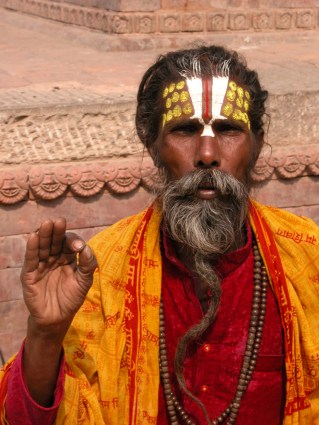The Poetics of No Space
New Ways of Looking at Homelessness

I dreamed I dwelled in a homeless place
Where I was lost alone
Folk looked right through me into space
And passed with eyes of stone
—Alan Ginsberg, from New Stanzas for Amazing Grace
Our metaphors for the homeless often erect immovable mansions of fear within our imaginations. Are there, however, methods of seeing homelessness that can help us see ourselves envisioning? One way is to explore how others have envisioned that state: other metaphors, other images.
The very dogs that wander houseless and homeless in the streets find some pitying hand to cast them a mouthful of bread; and that a man, a Christian, should be allowed to perish of hunger in the midst of other men who call themselves Christians, is too horrible for belief.
—Alexandre Dumas
In the film Leave No Trace, Will is a homeless veteran scarred by war. He and his daughter, Tom, find refuge in a rainforest. When civilization intrudes, offering them a house and jobs on a brutally mechanistic Christmas tree farm, like many “voluntarily homeless” protagonists — Huck Finn, Dersu Uzala, Han Shan, Li Po, Captain Fantastic, and at times Arundhati Roy — Will and Tom end up sleeping under the stars. Huck Finn and his buddy Jim holed up on a raft; Tang Dynasty poet Han Shan, whose name means “Cold Mountain,” in a hole.
Winter nights in Yakima, Washington, get icy. There, local publisher Cave Moon Press (洞月亮) offers a free online homeless resource guide. Listed are homeless medical and dental services, mental-health services, food banks, clothing banks, pet shelters, transportation, emergency services, advocacy, personal hygiene, veterans, legal services, crisis services, furniture and housewares, youth services, employment, and housing. The publisher also offers, uniquely, its own phone number. Overall, the guide offers an attitude toward homelessness that appeals to many Washingtonians: It envisions their estate through a lens that lends them a degree of dignity and even prestige.
Washington, after all, is poet Gary Snyder’s home turf. Like a Tang Dynasty eremite, Snyder long ago built and holed up in an off-the-grid cabin, earning himself the title of Poet Laureate of Deep Ecology. Famously, he takes seriously his dictum that “nature is not a place to visit, it is where we live.” Appropriately, he kicked off his writing career with translations of the verse of Tang Dynasty recluse Han Shan, meaning Cold Mountain.
My home’s a hole, and a hole’s where nothing is. Pure, clean, emptiness, to venerate … A blazing flower of brightness, sun oh sun … Food? Wild plants will make this meager body a meager feast, and a cotton robe’s enough to robe illusion …
—Han Shan, Cold Mountain Poems
In tribute to Snyder, the Homeless Resource Guide, Yakima Washington, starts out with a tribute to Han Shan.
家 Home
Han Shan, you wandered in caves by choice
caring not if they carved your poems
content to not let us know your name
the Tao tricked you, leaving us volumes to wade through
This isn’t Shang Hai, nor a dynasty
but we have the invisible.
Nobody knows how much choice forces
their wandering. We only know
they fought our wars
they had a fight at home
their mom had cancer
nobody was there to give them their meds
Han Shan you wandered by choice
We all wander by choice but
we grieve when that’s all they do when it is too cold outside
we grieve when that’s all they do when they can’t eat
we grieve when they can’t find their way home
In India, Gary Snyder’s dharma-bum buddy Alan Ginsberg had been introduced to another model of homelessness: a kind of fifth estate transcending the caste system. It is made up of some four to five million wandering yogi(ni)s. According to the scriptures, they are esteemed more highly than even the priestly class. After all, the state of bliss these yogi(ni)s seek, reposing outside the realms of mental structures and the senses, is itself homeless. Neither mind nor senses can locate it.
Householders, however, are fond of these mendicants because they usually appear relaxed, happy, and at home in the world. Their job is to wander from the south of India, where they winter, to the pine valleys of the Himalayas in the north, where they summer. Along the way, on the outskirts of villages, they meditate and impart religious instruction. They also teach villagers the three Rs. In exchange, they receive rice, rotis, and reverence. But not just anyone can join up. As some Westerners seeking entry have learned, these religious orders are immune to poseurs.




You must be logged in to post a comment.